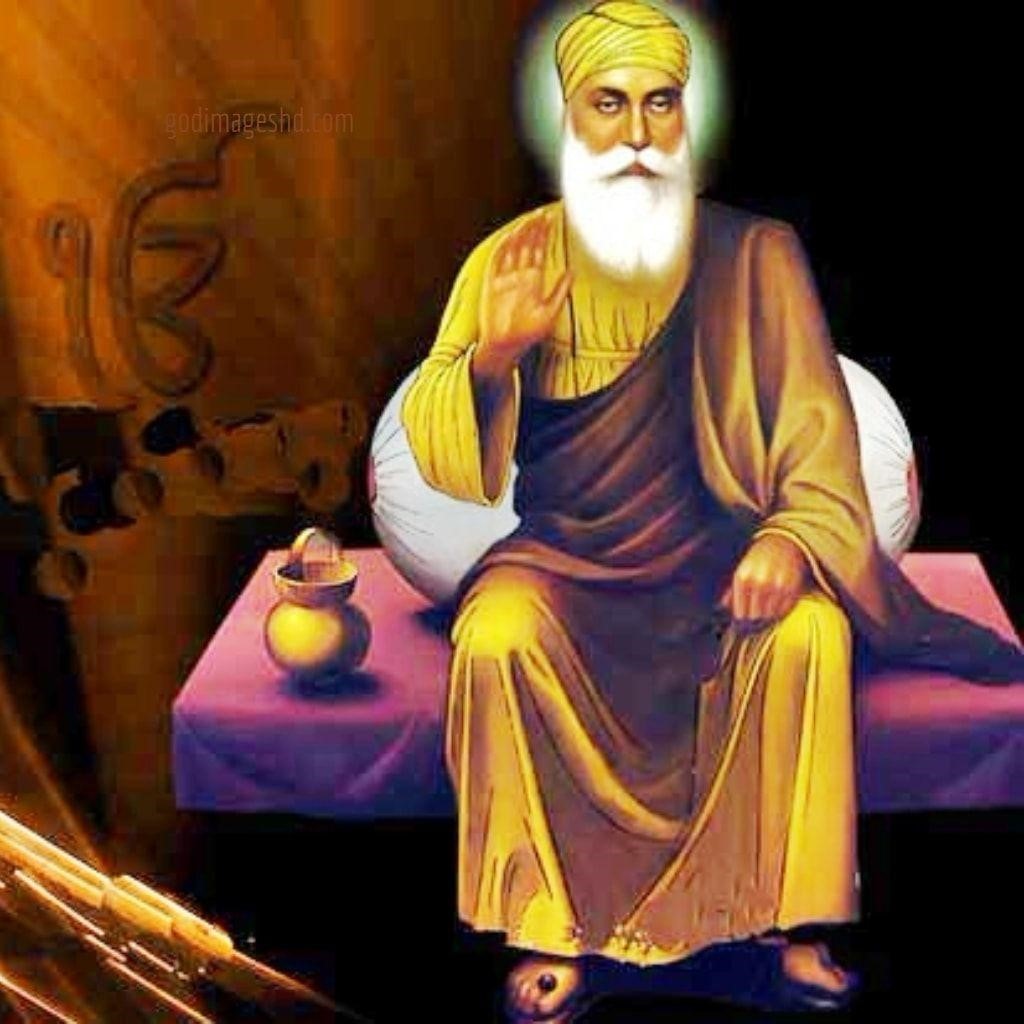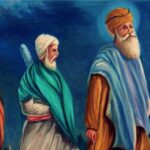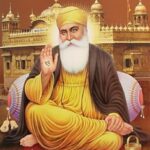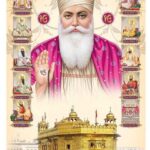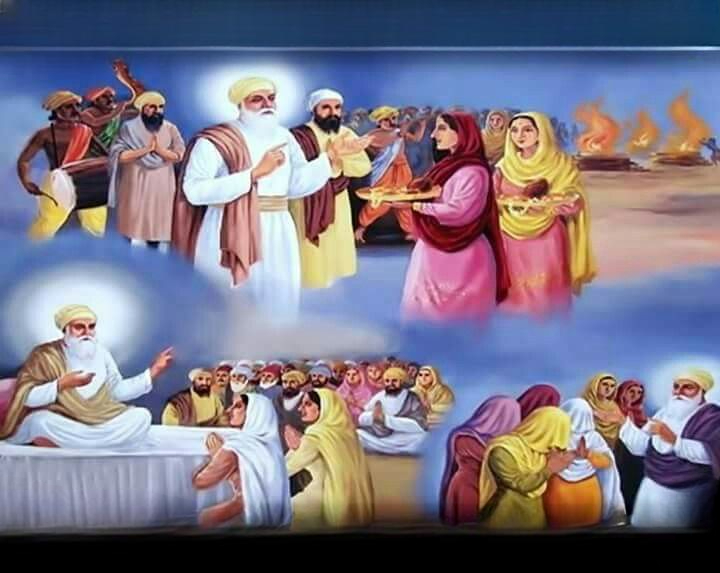India is known for its diversity in its diversity. India has always been a land where various religions and cultures represent one another. A variety of cultural structures can be seen across the country reflecting the country’s rich cultural heritage.
With so many religions here, India also has a rich religious background. One of India’s religions is Sikhism, the fifth-largest religion in the world.
The first Sikh guru, Guru Nanak Dev Ji played a very important role in religion as he was the founder of ‘Sikhism’.Guru Nanak Dev Ji always preached the message of ‘equality for all, regardless of religion, race, or gender.
The world celebrates the birth of Guru Nanak Dev Ji today, also known as Prakash Utsav of Guru Nanak or Guru Nanak Jayanti. It is celebrated annually on the day of the full moon in the month of Kartik, according to the Hindu lunar calendar – Kartik Purnima.
So here, we bring you some interesting facts about the first Sikhs guru – Guru Nanak Dev Ji

- Guru Nanak Dev Ji was born to Mehta Kaloo Ji and mother Mata Tripta Ji in 1469 A.D. in Talwandi, Nankana Sahib (now Pakistan). She also has one older sister – Bebe Nanaki.
- Even in his childhood, Guru Nanak Dev Ji enjoyed being with holy men and engaging in long conversations about the nature of God.
- Guru Nanak refused at a young age to wear a sacred cord called Janeu, saying that he would instead wear the name of the true God in his heart for protection. He thought that the cord could be cut, soiled, burned, or lost and that it could not provide any security
- When he was seven years old, his father, Kalu Mehta, enrolled him in a rural school. As a child, Guru Nanak surprised his teacher by explaining the meaning of the first letter of the alphabet. In Persian or Arabic, it is a straight stroke, similar to a single mathematical version. He described it as referring to the unity or oneness of God.
- When Guru Nanak Dev Ji was 12 years old his father gave him twenty rupees and asked him to do business, apparently to teach him business. But Guru Nanak dev Ji bought food with all the money and distributed it to the saints, and the poor. When did his father ask him what happened to the business? He replied that he had done “a real business”. Gurdwara was made in the area where the Guru Nanak dev fed the poor, called ‘Sacha Sauda’.
- Guru Nanak Dev Ji is reported to have traveled to India and the Middle East to spread his message along with his friends Bala and Mardana. In Mecca, Guru Nanak was found lying on his feet facing the Islamic Kaaba site. Kazi Rukan-ud-din, who saw this, angrily refused. Guru Nanak replied that it was impossible to turn his feet on the godless side of the house of God. Kazi understood that the meaning of this Guru was “God is everywhere”. The woman was surprised.
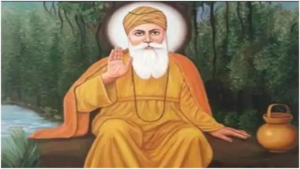
- Pakistan also has a gurudwara called ‘Panja Sahib’ dedicated to Guru Nanak Dev Ji. This is one of the most sacred sites of Sikhism due to the existence of a stone believed to contain the Guru Nanak manuscript engraved on it.
- According to legend, Bhai Mardana was sent three times to Shah Wali Qandhari by Guru Nanak to give him water to quench his thirst. Wali Qandhari rejected his request and mistreated him. Guru Nanak Dev Ji to quench Mardana’s thirst took the divine name and set aside a large rock lying nearby and a source of pure water flowed continually. Bhai Mardana quenched his thirst and felt grateful to Guru. On the other hand, the well of Shah Wali Qandhari dried up. Seeing this, Wali angrily threw part of the mountain toward Guru from the top of the hill. Guru erected a hand-rolled rock leaving his hand-printed on the rock.
- Guru Nanak Dev Ji laid the foundation for ‘Sikhism’ in the 15th century. Although the teachings of Guru Nanak can be found in the Sikh writings of Guru Granth Sahib, as a large collection of revelations recorded in Gurmukhi, his teachings are understood to be made in three ways: Vand Chhakkna: Sharing with others, helping the less fortunate. the needy; Kirat Karna: To earn/earn a living faithfully, without exploitation or fraud; Naam Japna: Singing the Holy Name as well as always remembering God (unwavering devotion to God).
- Sikhs celebrate Guru Nanak Jayanti with great zeal and enthusiasm around the world. However, it is widely celebrated in India and Pakistan. ‘Akhand Paaths’ (48 hours of further study of Sri Guru Granth Sahib Ji) is organized in Gurudwaras. Prabhat Pheris – a group of people starting at gurudwara and advancing to the locals singing shabads – reappeared 10 days before Gurupurab. The protests were also released the day before Gurupurab. Gurudwaras is also decorated with Guru Nanak Jayanti is the festival begins with hymns sung at Guru Granth Sahib Ji, followed by langar and fireworks in the evening.
He promoted Human Unity
Born in 1469, Guru Nanak Dev Ji lived during a period of great inequality in 15th-century India. Religious discrimination, slavery, and class discrimination were rampant. Guru Nanak Dev Ji spoke openly and acted against this, humiliating the nobles and nobles, while elevating the poor.
” Beware of the Lord’s light amid all things, and do not consider a social class or a position; there are no stages or structures in the world after this “- Guru Granth Sahib Ji (Ang 349).
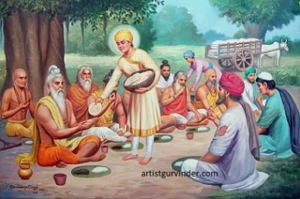
He was one of the most influential people in history
Guru Nanak Dev Ji traveled thousands of miles to spread God’s message of unity and purity. From his native Punjab, Guru Nanak traveled on foot to the Middle East, Europe, and East Asia. Accompanied by His loyal follower Bhai Mardana only, Guru Nanak is listed as a Mecca tourist and historic site in Tibet and Turkey for more than 20 years of travel.
Fighting for gender equality
In India during Guru Nanak’s time, women had very few rights. Widows were often burned alive as their husbands were burned and women were generally not allowed to remarry. Guru Nanak Dev Ji preached against this discrimination and sought to promote respect for women.

” By a woman, a man is born; inside the woman, the man becomes pregnant; to a woman engaged to be married and married. A woman becomes her friend; by the woman, future generations come. When his wife dies, he wants another woman; a woman bound. So why did you call him bad? Kings come from him. By woman, a woman is born; without the woman, there would be no one “- Guru Granth Sahib Ji (Ang, 473).
You have different names in different cultures
Guru Nanak Dev Ji is revered in many different cultures and as a result, has been given various names. Afghanistan He is often referred to as Nakan Peer. He is also known as Nanak Rishi in Nepal, Father Nanak in Iraq, Nanaka-Chraya in Sri Lanka and Nanak Lama in Tibet. These are just a few examples.
